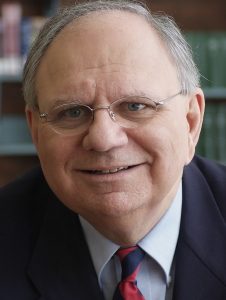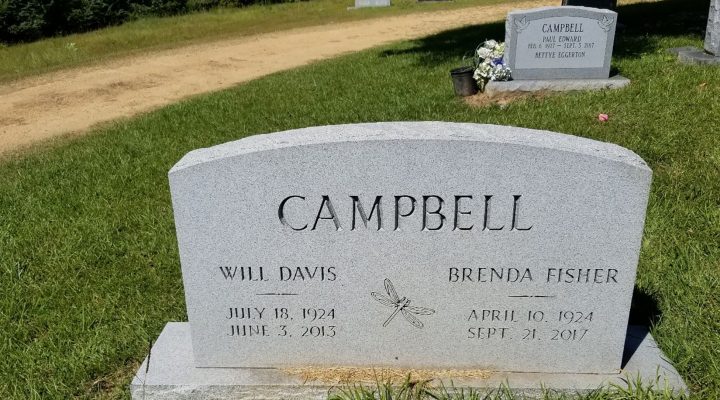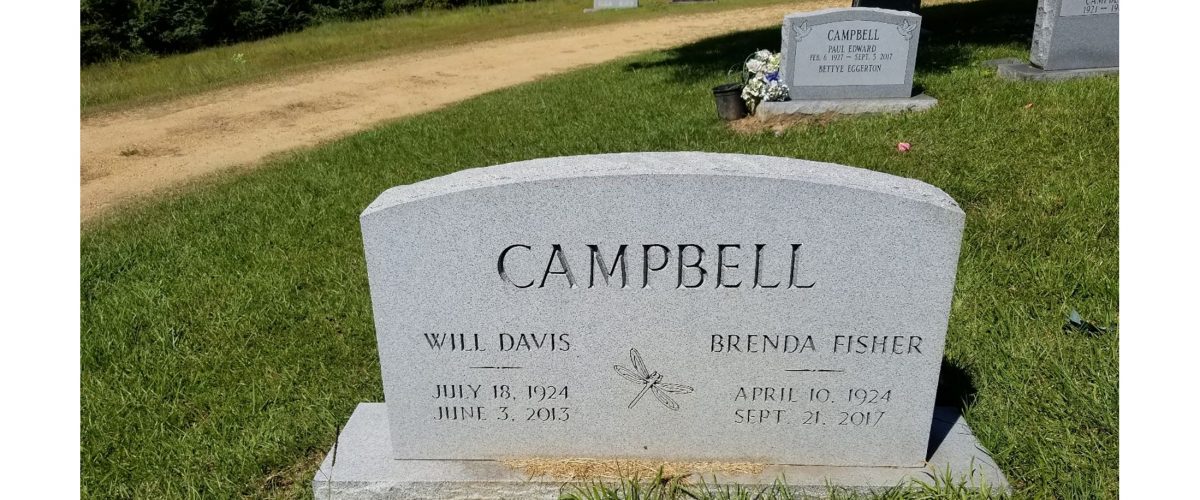Recently I returned to Mississippi to preach at the United Methodist church I served immediately out of seminary.
I turned 23 shortly after moving in. It’s a country church in Southwest Mississippi not unlike the one where I grew up. It was encouraging to find a stronger and more active church than when I left decades ago.

Lovett H. Weems Jr.
That can be said about fewer churches every year. Many of the established leaders today were children or youth when I was there. Many live on the same land as their parents did. Many more have college degrees than when I was there, but nothing about the church makes it less inviting for the least educated.
While there, I drove with my 12-year-old grandson about 20 miles into the adjoining county to the East Fork Cemetery to visit the grave of Will D. Campbell, known to some as an unusual preacher and social activist. His grave, beside his wife, is surrounded by the burial sites of generations of Campbell relatives. Campbell died 11 years ago this summer.
It’s said that folks from Mississippi always come home, even if it’s in a pine box. So it was for Campbell, who left his rural community before World War II.
Will Campbell was an eccentric Baptist preacher who fought fiercely for justice but never was comfortable with the conventional practices of churches. He grew up “dirt poor” in the tiny rural community of East Fork. Some Southerners know East Fork from the hilarious tales told by humorist Jerry Clower, who was two years younger than Campbell and is buried in the same cemetery. Both grew up in East Fork Baptist Church, founded in 1810 with a Revolutionary War veteran as the first pastor.
By early 1950s, Campbell had served in the war, finished college and was a student at Yale Divinity School. As the Brown vs. Board of Education Supreme Court case that would outlaw school segregation made its way through lower courts, Campbell and some of his Southern friends at Yale lamented the fact that this decision might be made while they were away at school. Everything would be settled before they could get home to help with the transition, they thought. “Unfortunately, we were slightly off the mark,” he later said.
He did return to the South and was involved in many of the most significant civil rights efforts of his era. At the formation of the Southern Christian Leadership Conference led by Martin Luther King Jr., Campbell was the only white person present — his presence opposed by some others gathered there. Later that same year, he was among only four white ministers to escort nine Black students through angry mobs during school desegregation in Little Rock, Ark.
“But as a religious leader, Campbell didn’t fit conventional models, so he found his ministry around the edges of organized religion.”
But as a religious leader, Campbell didn’t fit conventional models, so he found his ministry around the edges of organized religion. His understanding of his calling was broad and seen by some as inclusive to a fault. It was less than following Jesus, he said he came to see, if he agitated for the oppressed but hated the oppressor.
He was led to something of a second conversion, confessing that he could now understand the nature of tragedy — in which both the oppressed and oppressor are victimized.
“One who understands the nature of tragedy,” he wrote, “can never take sides.”
He rethought his relationship to his past and the people he had left: “We who left home, or were pushed from home when Mamma or Daddy couldn’t understand, were just a little bit prideful of our alienation from them, and a little bit arrogant in our newfound liberation and assumed sophistication.”
Although Campbell did not often work in and through the traditional churches, he became known through his lecturing and the several books that expressed the unlikely forms of inclusiveness in his witness and activism. John Lewis, a civil right coworker, says Campbell’s strategic gifts came from understanding that “the tragedy of Southern history had fallen on our opponents as well as allies. … That insight led Will to see racial healing and equity, pursued through courage, love, and faith as the path to spiritual liberation for all.”
In addition to his connections with civil rights leaders, Campbell developed a broad network of connections including country singers such as Willie Nelson and others from his years of living near Nashville. He connected with other writers, but perhaps what was most significant for Campbell was relating to the ordinary people he encountered.
At several points, he lived the second conversion he had experienced — ministering to members of the Ku Klux Klan and making a prison visit to James Earl Ray, the convicted assassin of his colleague and friend Martin Luther King Jr.
Jimmy Carter, born the same year as Campbell, was shaped by the same Southern, rural and Baptist circumstances (although less impoverished, as Carter acknowledges). Carter said Campbell served “marginalized people of every race, creed and calling,” conveying “a healing message of grace, reconciliation and faithful service.”
Lovett H. Weems Jr. is distinguished professor of church leadership emeritus at Wesley Theological Seminary in Washington, D.C., and senior consultant at its Lewis Center for Church Leadership. His most recent book (with Doug Powe) is Sustaining While Disrupting: The Challenge of Congregational Innovation.
Related articles:
Remembering Will Campbell: does anyone here NOT know Amazing Grace? | Opinion by Eileen Campbell-Reed
‘I came to watch a great convention die’ | Opinion by Glen Money


